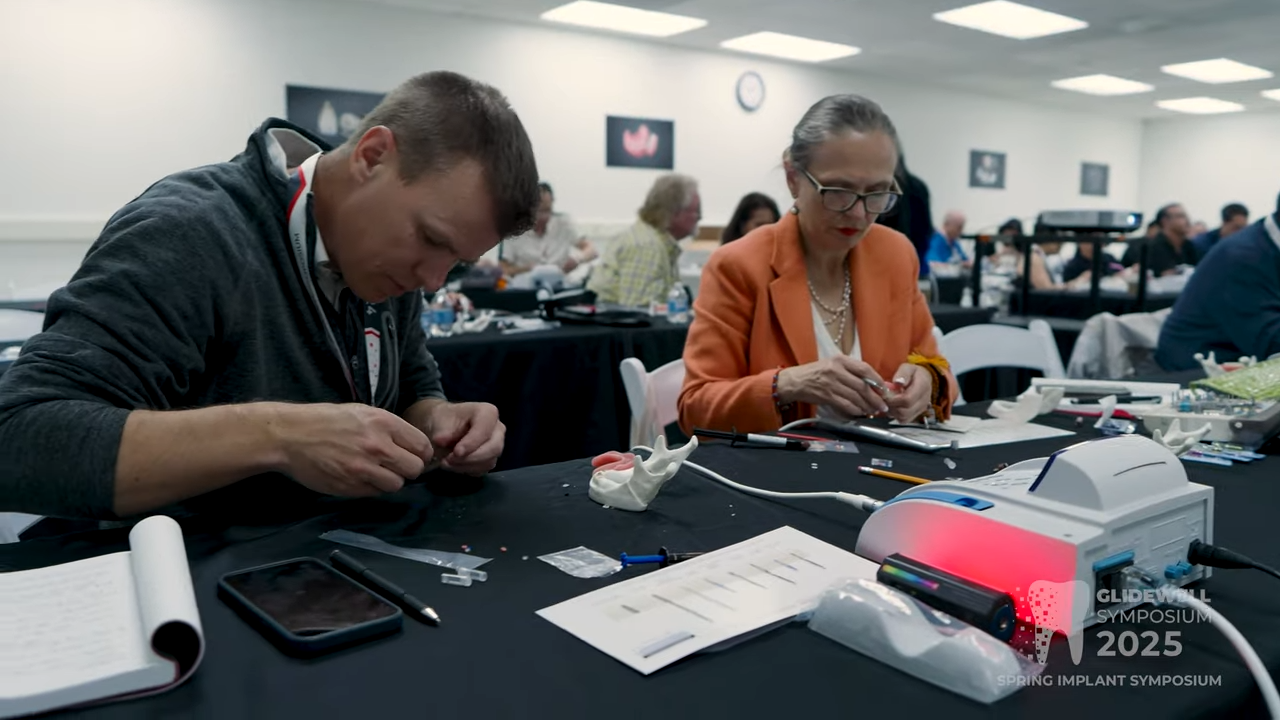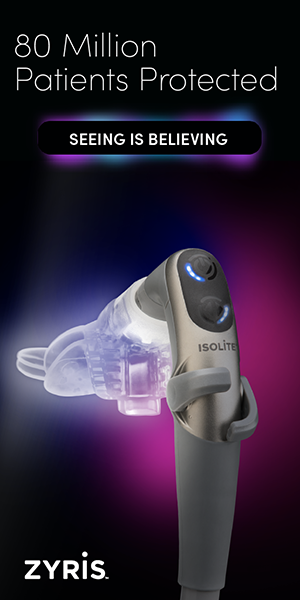 Have you ever been frustrated when a patient who would benefit from your treatment plan, and who can afford to pay, refuses to follow through with treatment? Of course, every dental team deals with this challenge on a daily basis. Maybe you are using some “killer words” that are lowering your acceptance rate.
Have you ever been frustrated when a patient who would benefit from your treatment plan, and who can afford to pay, refuses to follow through with treatment? Of course, every dental team deals with this challenge on a daily basis. Maybe you are using some “killer words” that are lowering your acceptance rate.
NEED VERSUS POSSIBLE
Dentists often say the patient needs a crown or a bridge. Wrong! There are five fundamental needs for human beings: air, water, food, shelter, and freedom from pain. People only need dentistry when they are in pain. How many of your daily patients come to you in pain? Seminar audiences tell me it’s less than 10%. So, when a patient is told they need a crown, a bridge, or periodontal surgery, their brain says, “I don’t hurt, so I don’t actually need this treatment/expense.”
| Table. Killer Words Versus Success Words | ||||||||||||||||
|
Ineffective: “Ms. Jones, you have several large fillings that are cracked, and we need to put crowns on them.”
SHOULD VERSUS CHOOSE/CHOICE
It’s common to hear dentists/staff say, “Mr. Patient, you should brush and floss your teeth every day.” Fact of Life: People do not do what they should do. They do what they want to or choose to do.
BUT VERSUS AND/BECAUSE
As Steven Covey wrote in his book, Seven Habits of Highly Successful People, “The ‘but’ word is used by people who listen to respond (win) as opposed to people who listen to understand (win-win).”
e their teeth every day and because good dentistry lasts a long, long time.”
TRY VERSUS WILL
If a person is capable of doing what is asked of them, then it’s not possible to “try.” Therefore, when someone says, “I’ll try to remember my appointment,” or “I’ll try to make it back from lunch on time,” or “I’ll try to make my payment on time,” know that the person does not want to do what you’ve asked. He may have no intention of doing it. He may just not have the courage to tell you.
CAN’T/HAVE TO VERSUS DON’T WANT TO/CHOOSE TO
There are only two things in this world every person has to do. One is to die and the other is to (no, it’s not pay taxes) live until they do. Everything else in-between is a choice. So when we think or say our patients can’t afford elective care, we’re actually saying patients don’t want to invest in themselves with elective care.
Daily life in a dental office is all about choice. Even coming to work each day is a choice doctor and staff make. Why do people come to work when they don’t feel like it? Because relative to the consequences of not coming in, being at the office is the preferred choice. This concept also works well for curing chronic no-show or late cancellation patients. The goal is to educate patients about the consequences of missing appointments so they will choose to honor their commitments. It’s amazing what happens to these patients’ attitudes when you say, “I’ll let it go this time, Mr. Jones, but from now on you will be charged the full value of a missed appointment unless we receive at least 24 hours notice in advance.” This one phrase will shape up many of your chronic problem patients. Some of them will leave the practice—that’s also a plus because then the schedule will be based on reality instead of hope.
POLICY/RULES VERSUS GUIDELINES
Example: It’s November and a long time, good paying patient wants six anterior veneers for $4,800. The patient says, “I’ll have to wait until I get my tax return in April.” If the policy is half down and the balance upon seating, the patient has to wait 6 months, and the doctor doesn’t get to do the treatment until April. Within the 6 months a new SUV or red convertible may catch the patient’s eye, and there goes their tax refund and the treatment plan. With flexible financial guidelines, the financial coordinator would say, “Mr. Jones, we’re not worried about you paying your bill. The doctor wants you to have your veneers. With $500 down and $200 per month for 6 months, you can enjoy having a beautiful smile and pay the remaining $3,100 when you get your tax refund in April. Will that work for you (or in your budget)?” Or, “How does that sound to you?”
CONCLUSION
By eliminating the use of killer words, anyone can become a more effective communicator. Increased effective communication = increased case acceptance = increased profits and professional satisfaction. Doesn’t replacing killer words with success words feel like a wise choice to make?
Mr. Johnson is an in-office consultant and speaker with clients in 36 states. His focus is on fee-for-service dentistry through leadership, effective communication, and team motivation. He has coached over 55 comprehensive cosmetic care/treatment planning study clubs. For information on Mr. Johnson’s in-office consulting or seminars, he can be reached at (800) 371-3147 or GLJseminars@msn.com.




